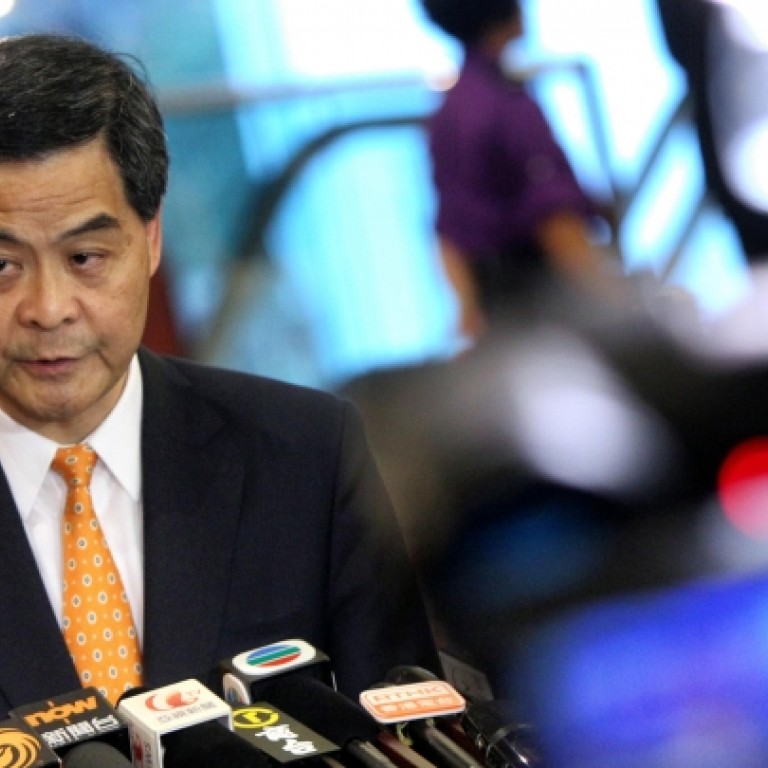
'US failed to give Hong Kong crucial information' for Snowden arrest
Washington accused of failing to provide crucial information on arrest demand
Hong Kong has hit back at US criticism over the way it handled whistle-blower Edward Snowden, saying Washington failed to provide crucial information it needed to legally detain or prevent the former CIA analyst from leaving the city.
Reliable sources with knowledge of the government's handling of the case have told the that a lack of detailed evidence to support the charges Washington outlined against Snowden and insufficient passport information - including Snowden's full name and passport number - meant they were duty-bound under Hong Kong laws to seek more details.
The White House said it did not accept Hong Kong's explanation, warning the decision to allow Snowden to leave had harmed Sino-US relations.
Responding to allegations by the US that Hong Kong had allowed Snowden to leave the city despite the revocation of his passport, the Hong Kong Immigration Department said: "So far no notification has been received from the US government of Mr Edward Snowden's passport being revoked."
WikiLeaks founder Julian Assange said Snowden had left Hong Kong with a refugee document supplied by Ecuador, which is considering Snowden's application for asylum.
The sources also told the the Hong Kong government had to ensure key information such as the accurate and full passport number of Snowden and his name were provided, because if the details were not all present and correct they could face a legal challenge at a later date.
"To ensure procedural fairness, the Hong Kong government needed to secure this information and also enough evidence about the charges [pressed by the US government] against Snowden. Failure to do so would give rise to the possibility of a judicial review by Snowden," the sources said.
Snowden's full name is Edward Joseph Snowden.
Hong Kong barrister Michael Blanchflower, SC, explained that the US government was required to provide specific information. This would include: the criminal charges in the US, the issuance of a warrant of arrest in the US, a description of the person, the information that the person was believed to be in Hong Kong, and also information supporting the charges to give Hong Kong an idea of the underlying conduct alleged to satisfy criminality.
Commenting on Snowden's case, Chief Executive Leung Chun-ying said Snowden had left Hong Kong through a "lawful and usual channel", though he realised "there have been expressions of displeasure on the part of ... the United States".
Leung said the Hong Kong government was still processing the request by the US government for the provisional arrest when Snowden left Hong Kong. Therefore, there was "no legal basis" to stop him from leaving. He insisted Hong Kong followed the law in handling the case.
"The people of Hong Kong and our friends in the international community expect us to follow the laws of Hong Kong itself. They expect us to uphold our rule of law and, equally importantly, they expect us to follow procedural fairness and procedural justice. We were asking the United States government for further important information on the case, and there was no legal basis to stop Mr Snowden from leaving Hong Kong," Leung said.
The US Department of Justice said senior US officials had been in touch with their Hong Kong counterparts since June 10.
Last Wednesday, US Attorney General Eric Holder spoke to Hong Kong's Secretary for Justice, Rimsky Yuen Kwok-keung, and urged Hong Kong to honour the request for Snowden's arrest, it said.
The US Department of Justice has denied there was anything missing in its request.
In unusually direct criticism of Beijing, White House spokesman Jay Carney said the US did not accept explanations the decision was simply a determination handed down by local Hong Kong authorities.
"We are just not buying that this was a technical decision by a Hong Kong immigration official," he said. "This was a deliberate choice by the government to release a fugitive ... and that decision unquestionably has a negative impact on the US-China relationship. The Chinese have emphasised the importance of building trust. They've dealt that effort a serious setback."
Video: US Secretary of State John Kerry warned of consequences to ties with Moscow and Beijing over Edward Snowden's flight from Hong Kong to Russia, saying it was "deeply troubling" if requests for his extradition had been ignored.


.png?itok=arIb17P0)